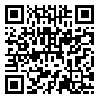Volume 7, Issue 25 (5-2013)
etiadpajohi 2013, 7(25): 39-56 |
Back to browse issues page
Download citation:
BibTeX | RIS | EndNote | Medlars | ProCite | Reference Manager | RefWorks
Send citation to:



BibTeX | RIS | EndNote | Medlars | ProCite | Reference Manager | RefWorks
Send citation to:
Ranjbar, N F, Alilo, M M, Asadi, M S, Ghodraty Y, Najar M S M. Comparison of Coping Strategies, Perfectionism and Self-Efficacy in Individuals with Substance Use Disorder and Normal Individuals. etiadpajohi 2013; 7 (25) :39-56
URL: http://etiadpajohi.ir/article-1-302-en.html
URL: http://etiadpajohi.ir/article-1-302-en.html
Payame Noor University
Abstract: (18743 Views)
Aim: The aim of the present study was to compare the coping strategies, perfectionism (positive and negative) and self-efficacy in individuals with substance use disorder and normal individuals. Method: In this casual-comparative study, 200 persons (100 individuals with substance use disorder and 100 normal individuals) were selected by cluster random sampling. The groups were matched with consideration of demographic characteristics (age, gender, marital status and education) and they completed the Lazarus and Folkman coping strategies inventory (1984), Terry-Short perfectionism scale (1995) and Schwartz and Jerusalem general self-efficacy questionnaire (1981). Results: Findings of the study showed that the two groups had significant differences on subscales of coping strategies namely: avoidance, self-control, responsibility, avoidance-escape and problem solving. In addition, substance abuse group had also lower scores on the positive perfectionism in comparison of normal group. A significant difference on the level of self-efficacy was observed between the two groups, in this regard, self-efficacy in normal group was more than substance abuse group. Conclusion: The selection of improper coping style, unrealistic and excessive expectations about the abilities and low levels of self-efficacy are factors that can lead to more substance abuse and finally addiction.
Type of Study: Research |
Subject:
General
Received: 2014/05/10 | Accepted: 2014/05/10 | Published: 2014/05/10
Received: 2014/05/10 | Accepted: 2014/05/10 | Published: 2014/05/10
| Rights and permissions | |
 |
This work is licensed under a Creative Commons Attribution-NonCommercial 4.0 International License. |





